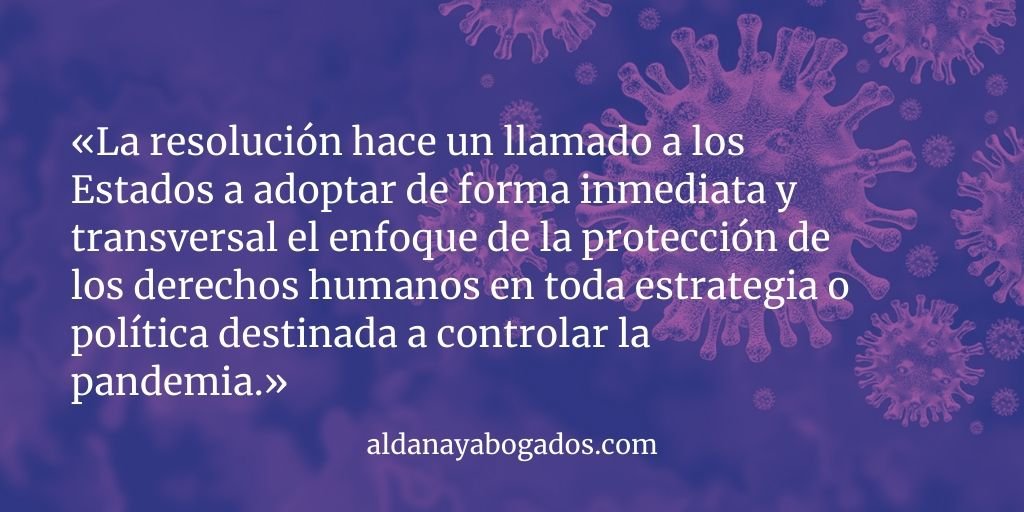Upholding constitutionality and fundamental guarantees by taking measures to prevent the spread of the Covid-19 disease has been one of the great challenges in all countries of the world. Some actions in the midst of the pandemic may be effective in curbing the spread of the disease, but at the same time they violate human rights.
Human Rights during the COVID-19 Pandemic
For these reasons, the Inter-American Court of Human Rights (IACHR) has ruled that published on May 10, 2020 Resolution 1-20 in response to the health emergency, with the intention that the decisions of the States are focused on guaranteeing respect for human rights. The document issues recommendations to address the confrontation with Covid-19 from a human rights approach, in full exercise of Article 106 of the Charter of the Organization of American States (OAS) concatenated with Article 41.b of the American Convention on Human Rights and Article 18.b of its statute, the Inter-American Commission on Human Rights.
The introduction to the document specifies that the Americas is one of the most unequal regions in the world.This is due to social gaps and poverty (in many cases extreme poverty), which makes it difficult to take all the basic prevention measures against the disease, especially when it affects groups in special conditions of vulnerability. This situation represents an even greater challenge when it comes to making decisions to curb the virus.
The resolution calls on the States to adopt immediately and across the board the focus on the protection of human rights in any strategy or policy aimed at controlling the pandemic and its consequences, including plans for social and economic recovery. In the text, reference is made to the fact that "in the measures taken that result in restrictions of rights or guarantees, they must conform to the principles of pro persona, proportionality, temporality, and must seek strict compliance with public health and integral protection objectives".
It is recognized that in order to generate an adequate social distancing, it is necessary to restrict the full enjoyment of rights. such as freedom of assembly and freedom of movement in public and common spaces, with the exception of those where basic supplies such as food and medical care are provided.
However, it is mentioned that the restrictions or limitations to some rights The application of other guarantees may have an impact on the application of other guarantees to certain groups, and it is therefore important to adopt positive protection measures for these vulnerable groups, including the elderly, persons deprived of their liberty, women, persons with mobility difficulties, children and even press workers, who have been affected.
Specialists in the area of law in several countries have coincided in that criminal actions within this health scenario must take into account all the particular situations in each region, even in each country, in order not to violate fundamental rights that may end up affecting even more than the pandemic.













